| |

Institute of Public Policy Studies (IPPS) |
The Institute of Public Policy Studies (IPPS) is a non-governmental organization under the umbrella of the Foundation for the Promotion of Public Policy Studies engaged in policy research, policy advocacy and political education to foster the development of participatory democracy.
Establishment
In 1985, under the auspices of the Social Science Association of Thailand, one of the oldest and largest academic associations in the country, IPPS was established and operated as a nonprofit, nonpartisan, non-governmental organization. After the registration of the Foundation for the Promotion of Public Policy Studies, the Institute detached from the Association and independently operated by two co-directors, Prof. Dr. Chai-Anan Samudavanija and Prof. Dr. Somsakdi Xuto. In 1993, Prof.Dr.Chai-Anan Samudavanija had become Chairperson of the Institute. 2017-2019 Prof. Dr. Somsakdi Xuto becomes acting chairperson.
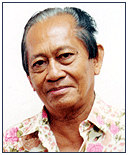
Prof. Dr. Somsakdi Xuto | 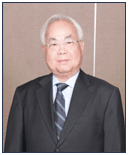
Prof. Dr. Chai-Anan Samudavanija | | 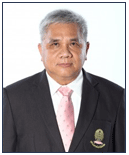
Associate Prof. Trakoon Meechai | 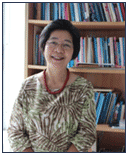
Thippaporn Tantisunthorn | 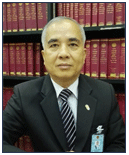
Somchart Jesrichai |
Presently, Associate Prof. Trakoon Meechai becomes chairperson and the Institute administer by Mrs. Thippaporn Tantisunthorn and Program Coordinator by Mr.Somchart Jesrichai.
Objectives
As a nonprofit, nonpartisan and non-governmental organization (NGO), IPPS approaches its overall mission by:
- Promoting and enhancing the understanding of democracy under the 1997 Constitution.
- Organizing public seminars, developing research and publishing in various media on the content of political reform and decentralization.
- Promoting political awareness and participation at all levels of policy making.
- Distributing public policy information and providing political education to the civil society on various aspects of legislation and administration.
Programs and Project Activities
There are two categories of IPPS programs and activities. (1) Policy analysis activities promote policy studies, public information, and public awareness and discussion of important public policy issues and policy debates. Programs are designed to enhance understanding and cooperation among public officials, parliamentarians, academics, civil society organizations and the general public. (2) Civic education programs focus on participatory democracy and good governance in the public sector and civil society. They are designed to promote political awareness and political education activities for the public at large.
IPPS implements its programs and activities in four main ways, through seminars and training, research, publications and multimedia presentations:
1.Seminars and Trainings:
IPPS seminars serve the purpose of policy advocacy through forums, discussions, and informal exchange of ideas between various groups who represents society. They also serve as a channel for dialogue between the public and private sectors. Topics of discussion range from drafts of legislation to general public policy issues. IPPS training provides civic education to enable the public to better understand changes in the socio-political arena. Education of this type has become increasingly important for local administration officials, teachers, and residents of localities, both adults and youth.
Participants of IPPS seminars and training are carefully selected and invited to attend free-of-charges.
2.Research
IPPS research focuses on all aspects of reform -- legal, sociopolitical, local government administration, etc. -- in accordance with the Constitutions. Our research provides a basis for policy proposals and information for members of the parliament, public officials, academics, civil society organizations, medias and the general public.
3.Publications
3.1 IPPS publishes a monthly newsletter, Social Reform-Democracy, which represents our attempt to keep abreast of rapidly changing situations and to promote a dialogue between IPPS and our networking members throughout the country. Newsletters are distributed free of charge to parliamentarians, educational institutions, government offices and civil society groups.
3.2 Monographs and books normally result from our research studies and are distributed free of charge to participants in our seminars and training courses, as well as to university libraries and, on request, to the general public.
4.Multimedia Presentation
4.1 In the area of multimedia, IPPS broadcast a weekly radio program (Saturdays, 17.00 to 18.00 hours, MCOT 1494 KHz AM) in which the host, Prof. Dr. Somsakdi Xuto, provides in-depth coverage of a timely topic. Following a background presentation on the history and other relevant aspects of the weeks topic, an authoritative representative from the public or the private sector, or from the media, academic, NGO or other professional communities speaks or is interviewed about the subject. Cassette audio tapes of radio shows aired since 1987 have been collected into a Voice Bank.
4.2 Digital Voice Bank is IPPS 600 radio programs, supplemented with brief typescript and guest speakers curriculum vitae, digitized in five CD-ROMs to be used with personal computer. Digital Voice Bank is classified in eighteen titles; 1) Royal Institution 2) Laws 3) Politics 4) International Politics 5) International Agencies 6) Bureaucracy 7) Economics 8) Agriculture and Fishery 9) Tourism and Export 10) Social 11) Environment 12) Bangkok Metropolitan 13) Science and Technology 14) Education 15) Arts 16) Religions 17) Sports and 18) Others.
IPPSs other media are presented in games such as Democracy Circle, Political Cards, Thai Constitution Calendar, and Election Game.
4.3 IPPS maintains an internet web site, or home page (http://www.fpps.or.th) which provides up-to-date briefings on ongoing activities, as well as reproducing articles from our monthly newsletter in both Thai and English.
|
| |







